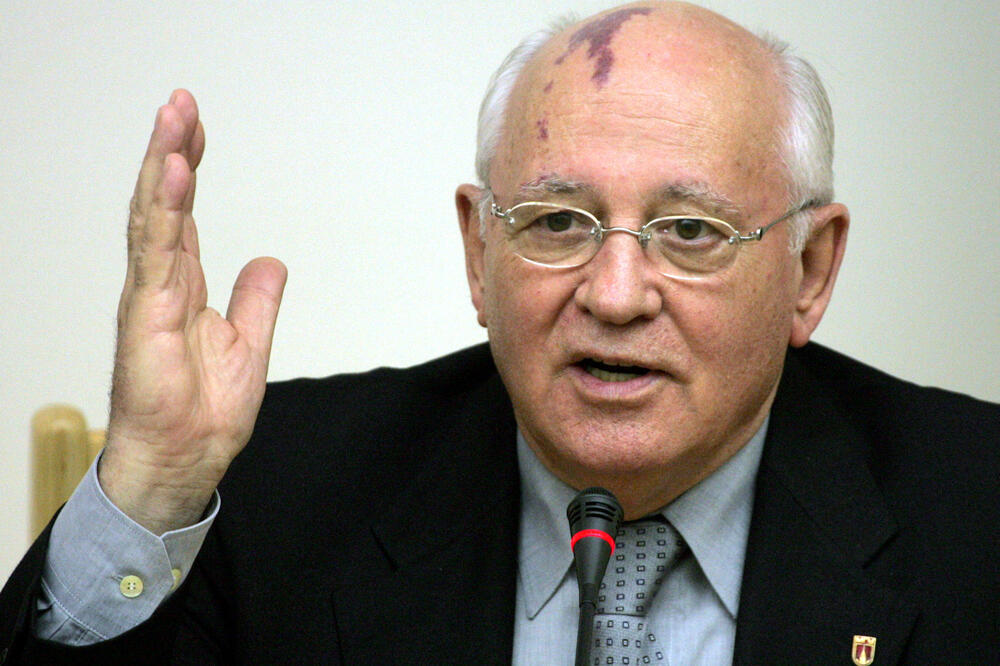Many, upon hearing the news of Mikhail Gorbachev's death, thought first - didn't he die a long time ago. Because his world died a long time ago, regardless of the current attempts to revive it in the form of a freakish imperial zombie... This is what happens when important people outlive their eras. In addition, Gorbachev was destined to be the Prince of the Epilogue, to be entrusted with the most difficult historical obligation: to announce that an idea and its associated policy had definitely failed.
Let's go back to the flourishing phase of the Soviet state... After Brezhnev death, followed by two short-lived leaders - Jury Andropov (16 months), who was allegedly more liberal than Brezhnev (which was not difficult), and after Andropov suddenly died, next to his coffin at the funeral stood, as the Soviets announced, his old friend - Kim Garoljdovich Philby, the most famous "defection" in the history of the Cold War. Then a reliable bureaucrat of the Brezhnev type was selected - Konstantin Chernyenko, but he also died 13 months later. A joke was immediately born in Yugoslavia - Here, the Russians have switched to collective leadership. For younger readers - after Tito's death, Yugoslavia was ruled by an eight-member presidency whose members alternated at the head for one year at a time...
In order to better understand the spirit of that time and space, a Russian joke from that time will help us.
The train travels in an endless beat. In the compartment they sit - Stalin, Khrushchev and Brezhnev... The train stops. The passengers are impatient, but the train does not move. Stalin stands up and says - I will take care of this. He got out of the compartment, went to the locomotive and found the driver trying to start the train. Since he cannot do it, Stalin shoots him with his own hands. Go back to the compartment, but the train is still standing. After some time, Khrushchev stands up and says - I will take care of this. He also goes to the locomotive where he finds the driver dead. He tells him - You are rehabilitated, and return to the compartment. Of course, the train is still standing. Then Brezhnev announces - I will take care of this. Brezhnev gets up, pulls the curtain over the window, and turns gray with satisfaction. He announces to his companions - Comrades, the train is going...
Jokes used to be able to replace volumes of studies - you will hardly communicate the more precise genesis of the collapse of the Soviet states in fewer words.
After Chernenko, a young politician was elected (obviously they didn't want another one-year mandate), a new type of leader who was formed and supported by Andropov. His campaign against alcohol also had a huge impact, he obviously wanted to shake even the most stubborn habits. Another fundamental change was - Raisa. Gorbachev's wife was far from the Soviet stereotype of a general's wife. Charismatic, well-educated scientist, warm-hearted - she was soon a favorite person around the world.
It was a reign marked by two words. Perestroika and glasnost. The whole world learned those two words, how new and unexpected it all was, that kind of change was the last thing expected from the Soviet Union. Probably no Russian ruler since Catherine the Great, or Alexander the First he did not have the kind of appreciation and respect in the west that the last Soviet leader had. Nevertheless, he is one of the few politicians who has retained his reputation and respect, even though his political project has not only failed, but also disappeared.
U Karerova book about Limonova you can find a telling anecdote. "There is no more Soviet Union," exclaimed the writer Editions, when in 1989, during his return to Gorbachev's USSR (until then unthinkable - for emigrant writers to return), he saw a policeman standing on the street, in front of a tavern. He watched for ten minutes and when he saw that the policeman was no longer causing fear in passers-by, he ran into the bar with the quoted sentence.
Limonov believed that there is no Russia without fear.
It is to Gorbachev's credit that he abolished that kind of fear, and no subsequent interpretations can take that away from him.
Bonus video:





